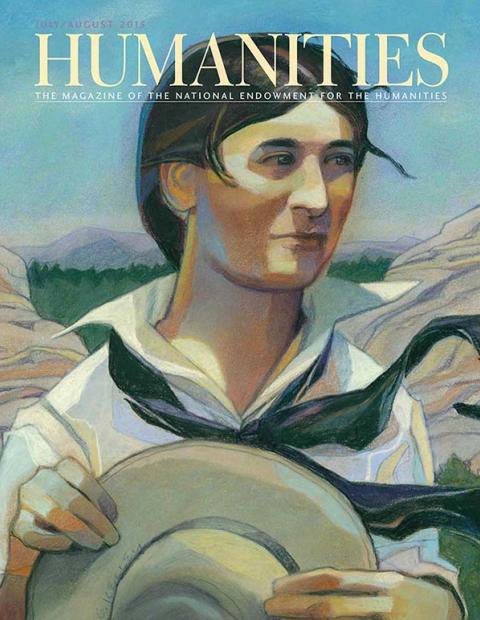In 2012, Robert Trondson, a producer at Wisconsin Public Television, attended a screening of the PBS documentary Freedom Riders that included a panel discussion with civil rights activists. A woman on the panel, a diminutive African American with curly gray hair, stood up and started speaking.
“And she immediately, in the nicest way possible, hijacked the event,” Trondson recalls. She told stories about working with John F. Kennedy and Martin Luther King Jr. and marching in Milwaukee, Wisconsin, for civil rights. “I was really impressed and intrigued by her moxie and her energy and her spirit,” Trondson says. He checked his program; the woman’s name was Vel Phillips.
When he got home, Trondson did an Internet search and found that Phillips was a civil rights pioneer. Starting in 1951, when she became the first African-American woman to graduate from the University of Wisconsin Law School, Phillips spent most of her life breaking down barriers. In 1956, she became Milwaukee’s first African-American and first female alderman. She was Milwaukee County’s first African-American judge, and the first African-American female to hold statewide executive office in the United States when she was elected secretary of state in Wisconsin in 1978.
“We’ve always wanted to do something on Vel, just because she’s so extraordinary,” says Garry Denny, director of programming for Wisconsin Public Television. With backing from WPT and a grant from the Wisconsin Humanities Council, an hour-long documentary, Vel Phillips: Dream Big Dreams, evolved from Trondson’s initial captivation. It first aired in February 2015.
Born on February 18, 1924, Vel, short for Velvalea, Phillips was the middle daughter of Thelma and Russell Rodgers, Milwaukee restaurant owners. Phillips’s mother wanted her daughters to be intelligent and polite. “She wanted us to be ladies,” Phillips says in the documentary. “We couldn’t smoke. We couldn’t drink. We couldn’t talk loud.” Later in life people would describe Phillips as “dainty” and “aristocratic.” When she entered a high school oratory contest, her father advised her, “When you’re up there, you might get nervous and you might be afraid, but just remember that people are there to listen to you. Have confidence and speak your voice.” Phillips won the contest and a scholarship to the college of her choice, Howard University.
Capturing Phillips’s spirit on camera was one of Trondson’s challenges. Her quiet strength comes out in her first campaign for alderman in 1956, when Milwaukee created a new ward.
Though the ward included an African-American neighborhood, it was still majority white. In order to win, Phillips concealed her race and gender. Her campaign literature didn’t include a photo, and she always went by Vel. When Phillips found out she was pregnant, she concealed that too, announcing it only after she won, by telling a reporter that the Common Council was getting “a woman and a half.”
Phillips wasn’t welcome on the council though. No one would share an office with her. “I said just put me by myself,” Phillips recalls in the documentary. “If they don’t want to be with me, I sure as hell don’t want to be with them. I talked real big about it, but it hurt me really deep down.”
Phillips stayed on the council, despite the insult. “Vel questioned the status quo in a lot of ways, saying, ‘Why can’t I?’” says Trondson. “‘Why can’t I be the one who leads this?’”
Phillips asked that question in 1962 when she introduced legislation that called for an end to segregated housing in Milwaukee. The ordinance was rejected four times in a row, the only vote in favor was hers. In 1967, Phillips, along with other activists, took to the streets in protest. The other side donned racist T-shirts, carried Confederate flags, and hurled rocks, firecrackers, and bodily fluids at the marchers.
“A big part of Vel’s story is the open housing marches and how violent they were,” says Trondson. “Thirteen thousand whites were out basically harassing and attacking two hundred activists.” Eventually, in 1968, a federal law forced Milwaukee to adopt open housing.
During this time, when Phillips and her family were getting threatened and harassed, she relied more than ever on her husband, Dale, also a lawyer, who ran the family firm, Phillips and Phillips.
“She had great support from her husband, who really dug her like crazy and wanted to be the person in the background, but really helped make things happen for her and was great counsel to her,” Trondson says. When her husband died, Phillips didn’t run for political office again, but started the Vel Phillips Foundation, which fights for social justice for minorities. And she still runs it at age ninety-one.

